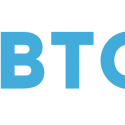Differentiating Between Privacy and Secrecy on the Blockchain
There is a fair amount of confusion about the relationship between privacy and secrecy. This is especially true in the world of blockchain technology, where platforms like Bitcoin have traditionally been viewed as overly secretive.
In reality, one of the greatest benefits of the blockchain is that it makes it easy to achieve privacy without secrecy. When leveraged the right way, blockchain technology can protect private data without requiring murky, secretive operations.
What Is Secrecy? What Is Privacy?
Put simply, secrecy means withholding information, even from people who have a legitimate right to access it because it affects them. Secrecy can be a harmful quality.
In contrast, privacy refers to the ability of an individual to control the sharing of information that they rightfully own. Privacy is a right that we should all enjoy.
If you take the world of digital advertising as an example, it’s easy to see the difference between secrecy and privacy. Traditionally, the digital advertising industry has been highly secretive. Companies like Google collect information from users, then use proprietary algorithms to serve ads based on that information.
Under this model, users have very little control over how their personal information is shared. In many cases, they do not even know how or when data collection takes place. It’s all a secret.
For their part, even content publishers and advertisers rarely know exactly what is happening in the secretive world of digital advertising. They rely on intermediaries to serve ads to the right users, and those intermediaries operate behind closed doors. This lack of transparency has led to disputes like The Guardian’s claim that digital advertisers collect “secret commissions” that harm publishers and advertisers, among other issues.
If the digital advertising industry prioritized privacy over secrecy, it would not collect personal data about users without their consent. It would instead let them know how, when and in which forms their data is collected, and give them the option to opt out.





